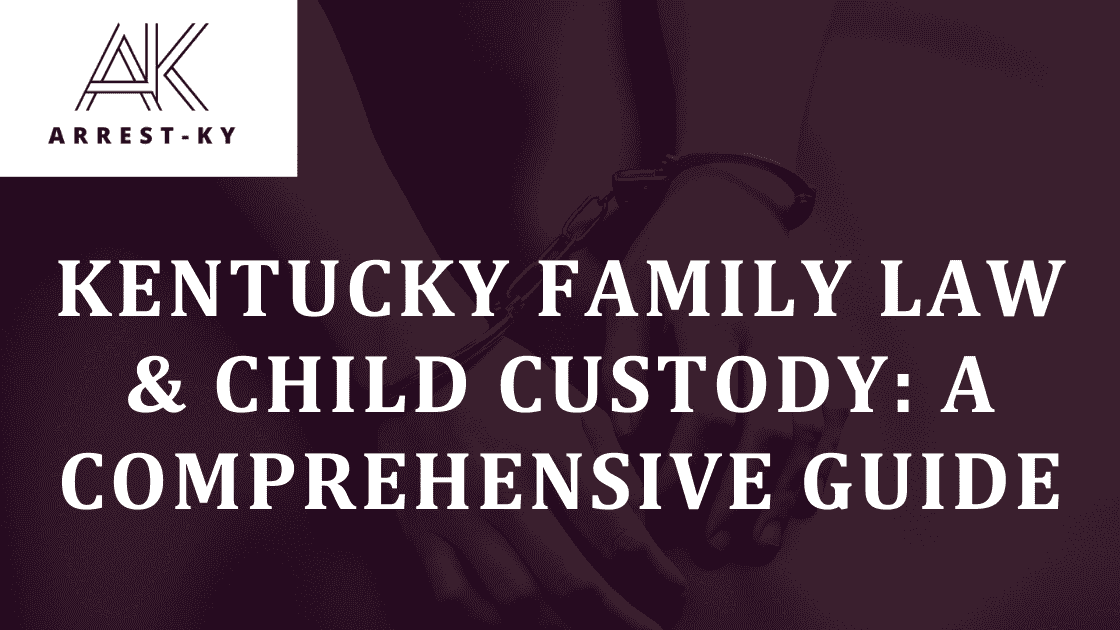Kentucky Child Custody Laws: What to Know
For parents who are experiencing separation or divorce, understanding child custody laws in Kentucky is an essential thing. Always it is done with aim of ensuring that child’s welfare is prioritized by the court while making decisions regarding the child. In Kentucky, parents are encouraged by law to come up with a parenting plan together but when they fail to do so, court has to take over. Let us delve deeper into how these regulations function.
Types of Child Custody in Kentucky

In Kentucky, there are two main types of child custody: physical custody and legal custody. Each has a different role in the upbringing of a child.
- Physical Custody: This refers to where the child lives. A parent with physical custody provides day-to-day care. Physical custody can be either sole or joint.
- Legal Custody: This gives a parent the right to make important decisions about the child’s life, including education, healthcare, and religious upbringing. Like physical custody, legal custody can be either sole or joint.
Courts frequently favour joint custody, as it enables both parents to actively participate in their offspring’s life. However, the ultimate determination of custody will depend on the individual situation.
Factors Courts Consider in Custody Decisions
To make a decision regarding custody, Kentucky courts put into consideration the various things that affect the best interests of the child. Such factors are used in guiding the court on its ruling:
- Child’s wishes: Depending on the child’s age and maturity, the court may consider their preferences.
- Parental involvement: The court looks at each parent’s role in the child’s life, including how involved they have been in the child’s upbringing.
- Stability: The parent’s ability to provide a stable living environment is a key consideration.
- Health and safety: The physical and mental health of both the child and the parents plays a significant role.
- Domestic violence: Any history of abuse or violence is heavily weighed when making custody decisions.
The crucial aspects are studied meticulously so as to arrive at a final choice which shall benefit the little one’s welfare.
How Parenting Plans Work in Kentucky
A parenting plan is an important document in Kentucky that specifies how parents will co-parent their child after they separate or get divorced. It covers different areas of the child’s life so that there is a seamless shift and security for everybody concerned. Though parents are encouraged to collaborate on this plan but if not they can leave it to the court.
What are the essential things to put in a parenting plan?
- Custody Arrangements: Specify who has physical and legal custody and how parenting time is divided.
- Visitation Schedule: Outline when the child will spend time with each parent, including weekdays, weekends, and holidays.
- Decision-Making: Define how major decisions regarding the child’s education, health, and religion will be made.
- Communication: Detail how parents will communicate about the child, including regular updates and sharing important information.
- Dispute Resolution: Include a method for resolving disagreements that may arise regarding the plan.
The parenting plan that is well-structured is instrumental in minimizing conflict and providing clarity between parents and children. It should be remembered that the plan can be modified if there are any changes in circumstances to keep it relevant as the child grows.
Modifying Child Custody Orders
Changes in life circumstances often lead parents to seek modifications to child custody orders in Kentucky. Whether due to a new job, relocation, or changes in a child’s needs, understanding the process for making adjustments is essential.
Here are some steps to adhere to while trying to obtain a modification:
- Determine Grounds for Modification: Valid reasons include a significant change in circumstances affecting the child’s welfare.
- File a Motion: Submit a formal request to the court explaining why the modification is needed.
- Serve Notice: Provide the other parent with a copy of the motion and notify them of the hearing.
- Court Hearing: Attend the hearing where both parents can present evidence and arguments.
- Await Decision: The court will decide based on what is in the child’s best interest.
Just keep in mind that changes can be quite intricate; nevertheless, having an attorney by your side would result in an easier transition.
Rights of Non-Custodial Parents
Even if they do not have primary custody, non-custodial parents in Kentucky still have important rights regarding their children. Understanding these rights helps ensure they remain involved in their child’s life.
The following are some important rights belonging to non-custodial parents:
- Visitation Rights: Non-custodial parents have the right to spend time with their child according to the agreed-upon visitation schedule.
- Participation in Decision-Making: They are entitled to be involved in significant decisions affecting their child’s life, even if they do not have legal custody.
- Access to Information: Non-custodial parents have the right to receive updates about the child’s education, health, and other important matters.
- Modification Requests: They can request changes to custody and visitation orders if circumstances change.
The significance of having a commendable relationship with the kid is paramount, and non-custodial parents ought to remain engrossed in their child’s life in due deference to custody agreements.
Frequently Asked Questions
Many parents have similar concerns when it comes to navigating Kentucky child custody laws. For your information, below are some frequently asked questions that may clarify your concerns:
- What is joint custody? Joint custody means both parents share physical and legal custody of the child. This arrangement allows both parents to participate in the child’s life significantly.
- Can custody orders be changed? Yes, custody orders can be modified if there are significant changes in circumstances that affect the child’s well-being.
- How does the court decide custody? Courts consider several factors, including the child’s wishes, parental involvement, stability, health, and any history of domestic violence.
- What if one parent wants to move? If a custodial parent wants to move, they may need to notify the other parent and possibly seek court approval, depending on the situation.
- What happens if a parent violates a custody order? If a parent does not comply with the custody order, the other parent can file a motion with the court to enforce the order or seek modifications.
I comprehend the contentions that is why training is more crucial than ever. These queries embrace a portion of the most frequent issues that parents have. For particular cases, it is significant to continue with legal counsel so as not to breach any right and to secure both your interests and those of your child.
Conclusion
Navigating Kentyucky’s child custody laws can be confusing, but knowing your rights and responsibilities is of utmost importance for both parents and children. This can be done through developing a strong parenting plan, knowing the process for modifications as well as understanding the rights of non-custodial parents so as to create an all-time healthy environment for their kids. Always bear in mind that it is important to seek legal advice as you make such decisions.


